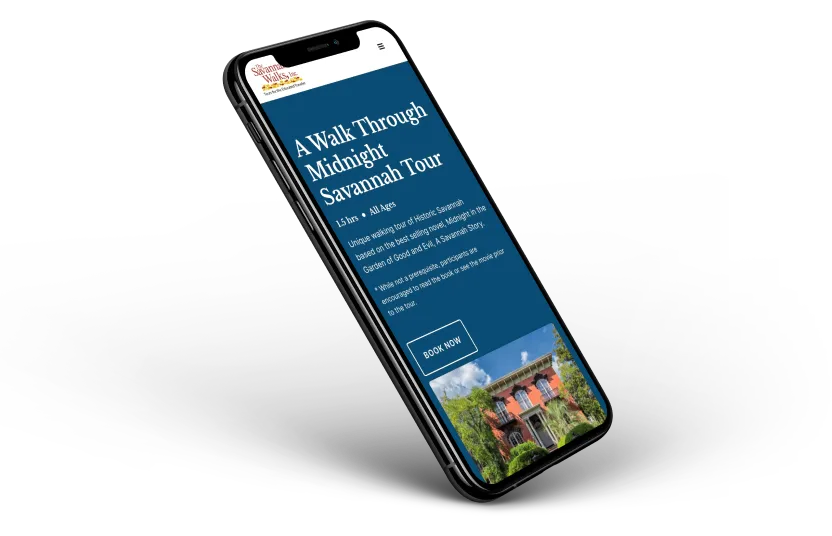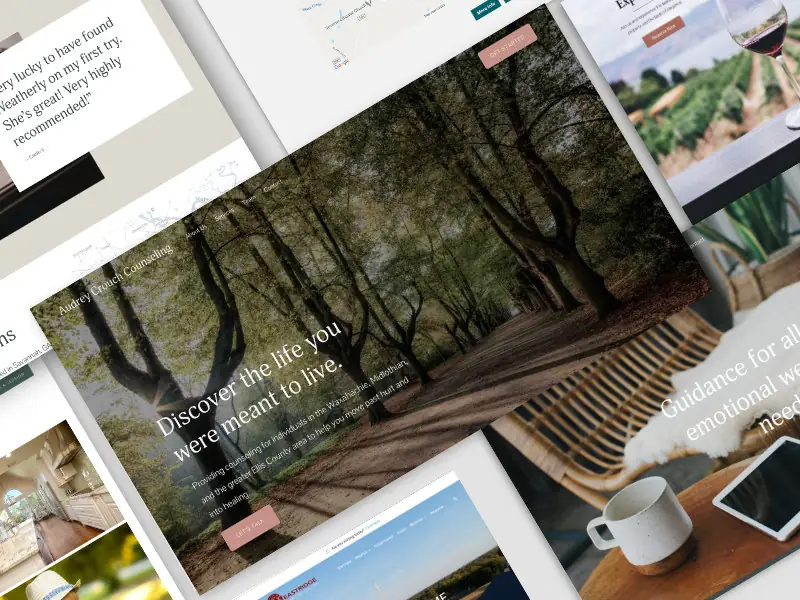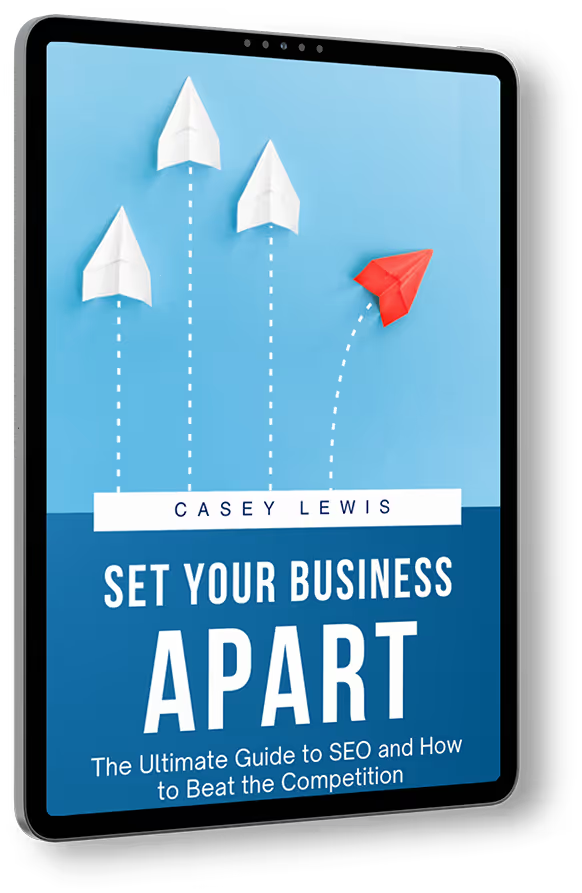5 Types of Web Pages Every Business Website Must Have

What are the 5 types of web pages every business website must have?
Every business needs a website. It is crucial for your business to market itself and sell its products or services to customers.
The advantage of having a website
Without a website your business is at the mercy of other platforms. If that platform - whether it be Facebook, Instagram, Snapchat, Behance, or Dribbble - decides to change how they do things, you may or may not be able to market your business in the way you need to reach your ideal customers. In short, you are gambling with your business’ marketing plan by relying on social platforms alone. That is not to say you shouldn’t be on them, you should. But they shouldn’t be the only way you market your business.
You need a website. Your website is your own. You control the features and design. You determine what you can and can’t publish and sell. You don’t have to worry about algorithm or design changes that hurt your business. You are in control.
Peter McKinnon's latest video is a great example of why you can't rely on social networks.
A great first step
If you are reading this post, chances are you realize the advantage to having a website. You might already have a web presence for your business. That is a great first step. You either have to be in the right mental head space to undertake a website build, even if you are working with a web design agency or a freelance web designer. Building out a new website takes work. You have to be prepared mentally to put in the effort. Deciding to build a website for your business is a great first step.
The second step
The second step is determining what you need on your website. In other words, you need to answer the question:
How many web pages do I need on my website?
In order to plan out your website (build a sitemap) and get a quote for your project, you need to know the number of pages you’ll have on your website.
The number of pages on a website varies. Some sites are small and some are large. But no matter how small or large your website, I believe you should have at least 5 types of pages on your website.
What are the 5 types of web pages every business must have?
To clarify, your website doesn’t just need five pages. Instead, it needs at least 5 types of pages. By type, I mean category.
You can think of each type or category like a different subject in school. You learn different types of information in each subject, but they all work together to provide you a well rounded education.
The same is true for your website. Each type of page on a website is different, but they all work together to tell the story of your business and market your product or service to your ideal customer.
What are the 5 types of web pages every business needs?
(1) Homepage
A homepage serves as the main landing page for your business’ web presence. It is one of the most visited pages on a website.
It’s referred to as the home page because it is the page you’ll land on when you type in the main domain or web address of any business. As well as it is the page to which you typically return after viewing other pages.
As the home base for your website, your homepage should do several things:
Present your unique value proposition.
If you are going to compete in today’s market, you have to stand out. Customers are bombarded with marketing noise. To reach your ideal customer, you have to cut through the noise and show others why you are different. That is exactly what your Unique Value Proposition (or USP) does. It tells others why you are different in one short sentence.
Your Unique Value Proposition should be the first thing someone encounters when they click on your homepage. It should be featured prominently in the Hero section (the first section on the page).
It should be a short memorable phrase that gets someone’s attention. I developed the following Unique Value Proposition in collaboration with a recent client.

When you click on his website: Natural Texas Lawn Care, you know exactly what he does and why it is different. He offers lawn care services. But not just any lawn service. He provides organic lawn care services. The advantages are that they are smarter solutions because in the long run they require less water and work. They are more environmentally friendly and safer for your family. All that information is communicated through a short, easy to understand headline that is featured prominently at the top of the homepage.
Social Proof
People want to work with people who are good at what they do. But how do you know someone is good or a product really does what it says it will do? Social proof is how.

Every homepage should have a testimonials section. A place where people can read or watch what others have said about you or your product.
Some of you might object, thinking that is narcissistic. But that’s not true. Testimonials are not meant to be ego drivers. Instead, they are a part of the sales process. The part that handles objections for you in other people’s words. Don’t shy away from offering them on your website. Instead, feature them prominently on your homepage.
Services
Your homepage should also have a section where you list out your services or products. You don’t have to go into great detail about everything you offer or all the advantages of your product. That is what a services or product page is designed to do.

Here is an example of a services section from a recent client’s site. It tells a visitor that the realty company works with buyers, sellers, and investors.
At a bare minimum, you need to feature your products or services on your homepage with a link to those specific pages so your customers can explore further if they aren’t ready to buy or work with you.
About Us
Your homepage should have a section that provides a short snippet of information about you or your company. It doesn’t need to be much longer than a paragraph.

Again, the idea is to highlight the basic information about yourself or your company. If someone wants to know more, they can click on the link to learn more about you.
Objections / Sales Copy
You need to anticipate and handle objections to your service or products. This is best done by discovering your ideal customers' pain points, highlighting them, then offering your product or service as a solution.

Returning to the lawn care company with which I worked, expensive water bills are a major pain point for those who want healthy green lawns. The service my client offers directly deals with this issue. He works to create healthy soil, which in turn allows water to penetrate more deeply instead of running off of hard packed soil. By increasing the watering efficiency he is able to save his clients money on their water bills.
This is a major selling point that we highlighted as part of the sales copy on the homepage. We used other sales opportunities as well. Another section focused on his products being safe for kids and pets. And another on the environment. All things his ideal customer cares about. All things he cares about as well as can provide with his Organic Lawn Care Service.
Understand your ideal customers needs and objections and create copy around those, highlighting your offering in a compelling way on your homepage. It is your opportunity to sell. Be sure to take advantage of it.
Call To Action
If you are going to go through the trouble of crafting a Unique Value Proposition, gathering testimonials from your customers, writing sales copy, and showcasing your product or service, you need to make sure you tell your customer exactly what you want them to do. In other words, you need to call them to a specific action.
You can’t beat around the bush or expect them to figure out what you want them to do. You have to make it clear. Should they book a consultation with you? Buy your product or service? Schedule a demo? Sign up for a free trial? What should they do if they are convinced you or your product is the right fit for them?

The call to action above is clear. It calls visitors to be a part of the cure by donating to Pediatric Cancer Research.
Be clear about your call to action and include one on your homepage.
Recent Blog Posts / Videos / Podcasts
Writing blogs, producing videos or podcasts take a lot of time and energy. You should feature those efforts front and center on your homepage.

Not only do they highlight your work, but they also act as further sales copy for your product or service. Make sure to include a section that at least highlights a featured post, video, or podcast on your homepage.
Contact Information
Don’t forget to include your contact information. Your homepage should provide customers with a way to contact you - social links, phone number, email. You should provide these on your website’s homepage. As well as you should include a section that links to your contact us page.
Summary
In summary, every homepage should have:
- Unique Value Proposition
- Social Proof
- About Us
- Services
- Sales Copy
- Call to Action
- Blog
Those are all the basic sections you should have on your website’s homepage. These sections form the basis for your website’s site map. You may not build a separate type of page for each section, but most of your sections will link to another page.
You should think of your homepage as a major selling opportunity, as well as a directory that links people to other pages on your website. The other pages every website needs.
(2) About Us Page
The about us page is the second most important page on a website behind the homepage. Believe it or not, more people will visit your about us page than any other page on your website.
Why is your about us page the second most visited page?
People want to know who they are working with and why you or your company is qualified to provide the products and services you offer.
Put thought into your About Us Page
It is important you put some thought into this page. If it is the second most visited page on your website, you need to put in the effort to craft a page that will highlight your story, skills, and abilities.
Your about us page is not just about you
When you begin thinking about the content, don’t just list all the things you have done. Your about us page is not your resume. You should just list your experience, accomplishments, skills, and awards.
You will include each of those things in the copy on this page. But you need to think about it from a customer's perspective. Write in such a way as to answer questions or objections they might have about your company.
Put yourself in their shoes
It is a bit of an art to craft copy for an about us page but I find that putting myself in the shoes of my ideal client or customer helps. Spend time thinking about all the things you would want to know about a company offering your product or service before you hired or bought from them.
Write out the questions and objections you would have. Then answer those questions and objections using your experience, accomplishments, skills, and awards.
Summary
If you take the time to work through the exercise of writing down the questions and objections you would have to your product or service, as well as your experience, accomplishments, skills, and awards. Then using your background to answer those questions or objections, you will be well on your way to writing a good about us page that both informs and sells.
You can check out our about us page for an example.
(3) Services or Products Page
If you followed my instructions for your homepage, you should have listed out your products or services your company offers. Now it's time to craft pages that highlight your services or products.
How many pages should you build in this category?
The number of pages you design and build will depend on the number of products or services you offer.
Create a separate page for each product or service
Each product or service should have its own page. Really from an SEO and sales perspective, having multiple pages that explain your products and services is a good strategy.
Writing multiple pages allows you to focus on one keyword and handle all the objections or highlight all the benefits of that product or service. It also allows you to provide different calls to action (what you want your customers to do).
Our professional photography page is a good example. Sure, we could have included this on one of our other pages, but we chose to break it out so that it would be separate.
Summary
Every website should have at least one services or products page. That page should highlight the advantages of your product or service, as well as it should handle any objections that your customers may have. As well as it should have a call to action.
(4) Contact Us Page
Every business should make it easy for customers to contact them. At a bare minimum your contact information should be featured in the footer section of each of your pages. But that is just a bare minimum. You should also have a separate contact us page. A main page where your customer can go to get all the information they need to get in touch with you.
Your contact us page is also an opportunity to direct your customer to the right person or department they should contact with their question, issue, or purchasing need. If you are a larger company, you might have multiple departments. It is easier and more efficient for everyone if they know exactly how to get in contact with the person they need to speak with to get the information they need. It is a waste of everyone’s time and resources to make multiple contact touch points in order to get to the right person or department.
Summary
Every website should have a contact us page. It should provide all the necessary information a visitor needs to get in touch with the right person. Use your contact us page to streamline contact with you or your company.
(5) Blog
Yes, I believe every website at bare minimum needs a blog. You might not be the best writer in the world, or you might not think someone wants to read your blog. But you still need a blog.
Why do you need a blog?
SEO
Blogs provide an opportunity to produce content that will help your website rank in the search engines. If you want organic traffic (traffic to your website you don’t have to pay for), you need to spend time producing content. A blog is a good way to produce regular focused content that will provide you an opportunity to rank.
Provide answers
A blog is also a good opportunity to answer questions your customers may have.
Go more in-depth
It also provides the space to highlight specific aspects of your product or service in a more in-depth way.
Showcase your personality
Additionally, a blog is a way to showcase your personality, especially if you produce a video or podcast style blog. People want to work with people they know and like. A blog is a way for people to get to know you, even if they have never met you in person or over the phone.
Provide updates
Lastly, a blog is an opportunity to provide updates about your product or service or highlight recent events you have hosted or attended.
Summary
Even if you aren’t a writer, a blog can be a valuable resource for your business. Don’t neglect this crucial type of page. Investing the time in a blog will help you rank, inform, and create a connection with your ideal customer you might not be able to create otherwise.
Conclusion
A homepage, an about us page, a services or product page, a contact us page, and a blog are the five types of pages every website should have. You might add other types of pages such as a FAQ page or a gallery. But at bare minimum you need to include these pages on your website.
If you need help designing and developing your website, reach out to me. I’d love to learn about you and help you build, maintain, and market your company. You can reach me at: casey@clcreative.co
Let's work together to build the 5 types of web pages your business website must have.
End to End Webflow Design and Development Services
From Web Design and SEO Optimization to Photography and Brand Strategy, we offer a range of services to cover all your digital marketing needs.

Webflow Web Design
We design custom Webflow websites that are unique, SEO optimized, and designed to convert.
Webflow Support
Get dedicated design and development support from a Webflow Professional Partner without the overhead of a full-time hire or the hassle of one-off project quotes.
Claim Your Design Spot Today
We dedicate our full attention and expertise to a select few projects each month, ensuring personalized service and results.







